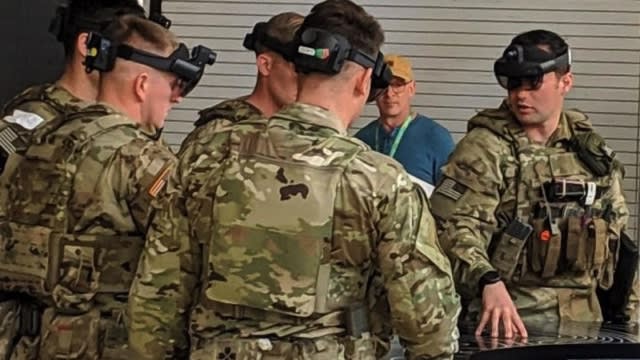It's Monday, April 08, 2019. Hey, good morning!  Over the weekend, we reported more details of Google’s cheaper Pixel phones, see how the US Army plans to use augmented reality in the field, and explained how the UK is investigating games companies, including Nintendo and Sony, over apparently unfair services. And it's only Monday morning! They might be just around the corner.  Google's first mid-range Pixel phones may be close at hand. Both the company's store and the Google Play Developer Console's device catalog (which helps app developers allow or restrict device access) have made references to the Pixel 3a phone family. The device catalog appears to confirm some of the core details. The smaller Pixel 3a, Bonito, would have a 2160 x 1080 display, while its larger 3a XL counterpart (Sargo) appears to have a taller 2220 x 1080 screen. | | Feels like a "real-life game of ‘Call of Duty’" When Microsoft employees balked at the company's $479 million HoloLens contract with the US Army, it raised a question: Just what would this system look like? You now have a better idea. The Army has given CNBC an early demo of its Integrated Visual Augmentation System, which uses a modified HoloLens 2 to provide both combat assistance and training. It reportedly feels like a "real-life game of Call of Duty" -- you can see your squad's positions on a map, a compass and even your weapon's reticle. Thermal imaging would help you see in the dark without as much of a telltale glow as existing night-vision headsets. | | Facial recognition isn't ready to spot terrorists on the road.  New York's bid to identify terrorists through facial-recognition tech on the roads isn't going very smoothly. The Wall Street Journal has obtained a Metropolitan Transportation Authority email showing that a 2018 technology test on New York City's Robert F. Kennedy Bridge not only failed, but failed spectacularly -- it couldn't detect a single face "within acceptable parameters." Not great. | | Beyoncé + Coachella  The streaming service has teased a documentary on Beyoncé's much-hyped performance at last year’s Coachella festival -- conveniently, just ahead of the 2019 festival's second weekend.
| | But wait, there's more... | |
No comments:
Post a Comment